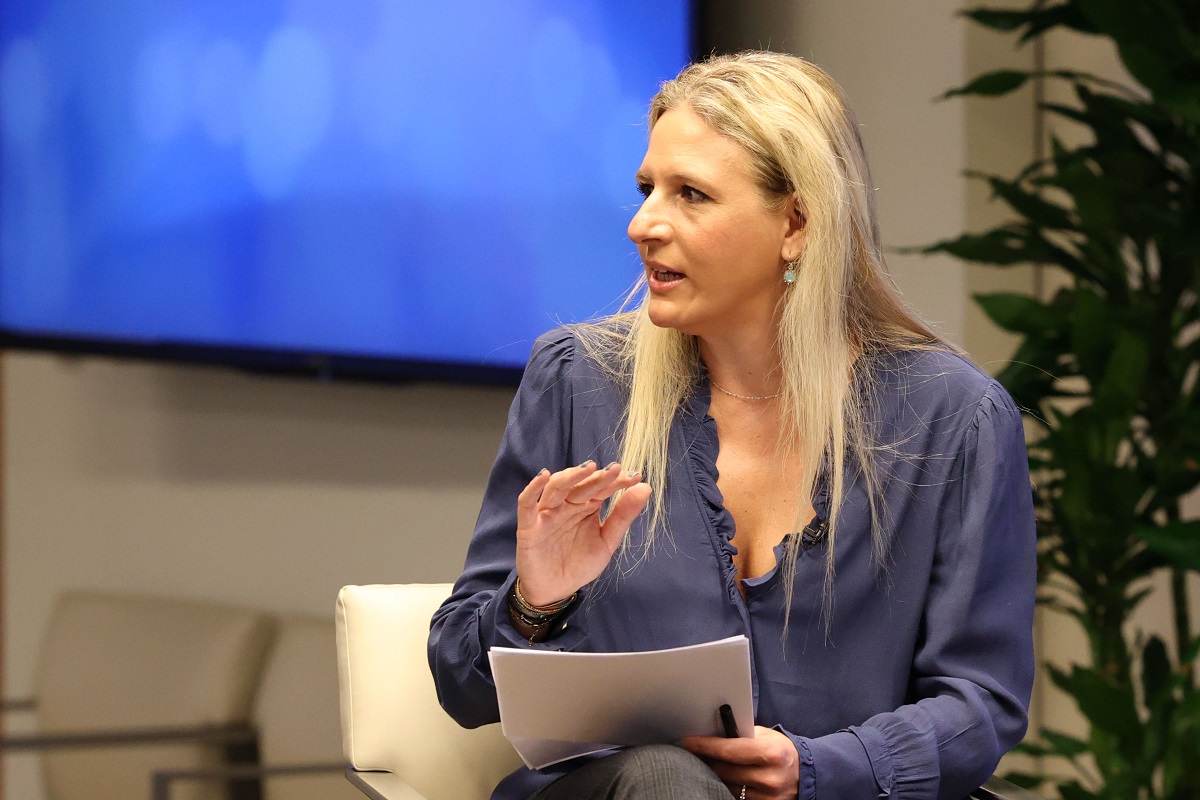The UK prime minister announced Tuesday that the Foreign and Commonwealth Office and the Department for International Development (DIFD) will merge into a “powerful, single integrated voice” in September.
Looking at previous cases of similar mergers in other countries, it’s hard to see this move as strengthening Britain’s role in development. But, if the department is serious about development, there are important steps it could take to demonstrate that commitment. The government has given itself three months to implement the merger. What should Foreign Secretary Dominic Raab and Development Secretary Anne-Marie Trevelyan prioritise to make the new department the best possible asset for Britain and its development partners? I set out seven components below.
1. Do not cut aid during the COVID-19 pandemic
The new department can immediately demonstrate it is more effective working together by avoiding a major own-goal by cutting support to its partners during the COVID crisis.
The new department’s 32 developing partner countries—including 12 Commonwealth partners, who might have expected post-Brexit boost—are facing massive health and economic problems. At the same time, they are hearing from DFID that their support will be cut as the UK says it cannot spend over 0.7 percent of GNI, and “must” find nearly £2 billion (around 12.9 percent) of in-year savings; £1.5 billion within DFID and FCO combined.
The inconsistency of massive public spending at home while reducing spend with key partners will be hard to miss—and will badly tarnish the image of both the merger and, more broadly, Global Britain with key partners like Ethiopia, Nigeria, and Pakistan, not to mention Kenya (which is coping with a “biblical” locust infestation and the risk of new trade barriers post-Brexit).
But the Whitehall super-department should do two things. First, make clear to HM Treasury that the aid target is a minimum, not a maximum, and that it will spend the budget it was allocated a year ago (the minimum in every other department). Second, if the concern really is about the tabloid optics of exceeding 0.7 percent, the new Foreign and Development Secretary should review Whitehall spend and use the legal reporting power to exclude borderline items (the Cameron government did the opposite to meet the target).
Of course, the recovery from COVID-19 will ultimately bring fiscal pressures, but the new department should ensure that, as with the analogous 2 percent NATO defence target, the UK does not cut aid to key partners during the crisis.
2. Get on top of global health security
The new department should get a grip on global health security. The UK spends 2.1 percent of national income on defence but COVID has already killed 10 times the cumulative fatalities from terrorism since 1970. Surprisingly, the Integrated Review of foreign policy and security excluded health from its initial scope despite the links being made all the more obvious during the outbreak and the role military health systems have played in the UK and globally in the response.
The new department should create a directorate on global health and use its place on the National Security Council to make the security-health link more explicit. It can work with HM Treasury and the Department of Health to lead efforts at global institutions like the World Bank (given its emerging role in global health security), the Global Fund, and WHO. It can forge partnerships with emerging regional players such as Africa CDC, as well as with its bilateral partners to support data infrastructure, surveillance, and capacity for preparedness in the poorest nations and populations.
3. Establish new parliamentary scrutiny and oversight structures
The government effectively sets parliamentary scrutiny structures; these will be critical in retaining confidence in the merger, the scrutiny of foreign policy, and the value for money of aid spending.
UK taxpayers, the media, and aid recipients all benefit hugely from the scrutiny of the UK’s policy and spending by Parliament. The committee structure will need to change to reflect the merger, with a single committee to focus on Foreign and Development policy. Still, given the importance of value for money in aid—and over £2 billion still spent outside of the new department—the government should create a cross-cutting committee, like the public accounts committee, to focus on questions of aid value for money. This would provide visibility and reassurance to taxpayers and Parliament alike on aid spending, and enable the Foreign Affairs and Development Committee to focus on policy.
The Independent Commission for Aid Impact, an operationally independent non-departmental public body and a model for other countries, should automatically move to the merged department and continue its critical work to weed out non-impactful spending; reflecting the new Secretary of State’s legal requirement to ensure “independent evaluation.”
4. Appoint a Chief Secretary for Development
Evidence shows that cabinet representation for development results in better development policy. A voice that reflects the perspective of the 3.7 billion people who live in countries with average income below $4,000 is a valuable input to collective decision-making. Former Foreign Secretary Jeremy Hunt highlighted the value of such input, and the Chief Secretary to HM Treasury (previously fulfilled by current Chancellor Rishi Sunak) plays a similar role.
This post could also play a major role in ensuring the coherence of the UK’s aid spend across government. The PM made the case for more “coherence to our international presence,” and with the Business, Energy and Industrial Strategy Department spending £1 billion (more than the Foreign Office) and the Home Office with ambitions for more than its half a billion, a Chief Secretary for Development could help ensure the coherence and quality of all Whitehall’s international aid spending.
5. Match major development actors on capability
All other major OECD development actors—France, Germany, Japan, and the US—have a separate development agency with deep expertise. In going a different way, the new department will need to work hard to retain that same degree of expertise. DFID is renowned for the professionalism of its approach—and there is clear evidence that mergers elsewhere have led to a loss of expertise.
There are at least three strengths that the new department should build on:
- The Value for Money architecture. This is the approach to spending aid money is careful, systematic, and evidence-based. It involves concept notes, business cases, peer review; and annual reviews.
- Professional advisory cadres. The Foreign Office’s excellent diplomats will surely survive the merger. So too should DFID’s own specialists, including those in infrastructure, planning, anthropology, and public health, consistent with the professionalisation of the civil service
- Chief technical advisors. High-calibre professionals in roles like chief scientist and economist are invaluable. These roles have advised and been empowered by Ministers. The new department should retain this strength; including both macro and micro chief economists for its unique global and spending challenges.
These capabilities are major assets—and ones the merger should build on.
6. Foster coherence in finance with a UK single lead at the World Bank and IMF
The UK should move its World Bank and regional development bank board seats to HM Treasury.
With the impact of COVID-19 on the already indebted global economy, the key global puzzle will be how to help finance the recovery in developing countries while heading off a debt crisis. The two key global institutions in this effort will be the World Bank and the IMF, where traditionally DFID and HM Treasury have respectively represented the UK.
The vast majority of World Bank shareholders (almost 70 percent) are already represented by their ministries of finance. With the G20 and G7 finance ministers leading the COVID-19 response, the UK should take the opportunity to make HM Treasury the sole lead at the World Bank to ensure coherency of approach. The same case can be made for CDC the government’s development finance institution. The regional development banks that DFID currently leads on—the Inter-American Development Bank, the African Development Bank, and the Asian Development Bank—should also be under HM Treasury’s remit, as the European Bank for Reconstruction and Development and the Asian Infrastructure Investment Bank already are (potentially with alternates from the new department).
7. Prioritise poverty and refocus EU funds
The Foreign Office is short of resources, and support for “neighbourhood” countries is hidden within the UK’s EU contribution. The new department should receive part of the £5 billion EU contribution which reduces from 2021 rather than raid its support for the poorest.
The UK has already de-prioritised the poorest countries. Under Osborne’s aid strategy, the share of the UK's bilateral spend going to just over 50 least developed and low-income countries fell from 38 percent to 27 percent between 2014 and 2018.
The prime minister signalled he wants to see more security support to countries like those in the Balkans and Ukraine. Many of these countries are eligible for aid (although the latter has a space programme, a show-stopper for some) though they have very few extremely poor people.
But if the UK does not spend enough in Ukraine, one major reason is that its spend is still channelled through the EU. This non-aid international spend is very significant, and almost completely overlooked. In a forthcoming analysis, we will show the UK spends some £5 billion per year in Eastern and Southern Europe through the EU (and over £60 million to Ukraine). In 2021, this contribution will decline—and the new department should be allocated part of this budget-line.
The Conservative Manifesto admirably committed to ensuring children and mothers do not die unnecessarily. The UK can’t accomplish this alone, but spending the aid budget in China, Ukraine, or other places with relatively low infant mortality will slow progress. The PM himself doubted whether any other event surpassed the recent pledge to increase GAVI’s funding in terms of lives saved or suffering avoided.
A key test for the department will be whether it continues or reverses its decline in spend on the poorest countries.
Conclusion
The timing of the creation of the new department was arbitrary and pre-empted the conclusions of the integrated review. The UK’s development reputation and effectiveness are at risk, but are not yet irreparably damaged. What will matter in the coming months is whether the new secretaries discard the UK’s development leadership or build on it.
I’m grateful for input and great advice from colleagues, including Sam Hughes, Euan Ritchie, Rachael Calleja, Kalipso Chalkidou, Ranil Dissanayake, Susannah Hares, Mark Plant, and Mikaela Gavas. Any views and all errors are entirely the responsibility of the author.
Disclaimer
CGD blog posts reflect the views of the authors, drawing on prior research and experience in their areas of expertise. CGD is a nonpartisan, independent organization and does not take institutional positions.





